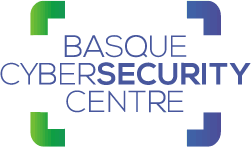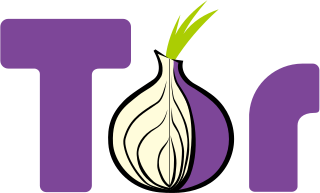 W
WInternet security is a branch of computer security. It encompasses the Internet, browser security, web site security, and network security as it applies to other applications or operating systems as a whole. Its objective is to establish rules and measures to use against attacks over the Internet. The Internet is an inherently insecure channel for information exchange, with high risk of intrusion or fraud, such as phishing, online viruses, trojans, ransomware and worms.
 W
WTroy Adam Hunt is an Australian web security consultant known for public education and outreach on security topics. He created Have I Been Pwned?, a data breach search website that allows users to see if their personal information has been compromised. He has also authored several popular security-related courses on Pluralsight, and regularly presents keynotes and workshops on security topics. He also is the creator of ASafaWeb, a tool that performs automated security analysis on ASP.NET websites.
 W
WThe Automatic Certificate Management Environment (ACME) protocol is a communications protocol for automating interactions between certificate authorities and their users' web servers, allowing the automated deployment of public key infrastructure at very low cost. It was designed by the Internet Security Research Group (ISRG) for their Let's Encrypt service.
 W
WBadlock is a security bug disclosed on April 12, 2016 affecting the Security Account Manager (SAM) and Local Security Authority (LSAD) remote protocols supported by Windows and Samba servers.
 W
WThe Basque Cybersecurity Centre (BCSC) is the organization appointed by the Basque Government to promote cybersecurity in the Basque Country. It is made up of departments of the Basque Government and technology centres.
 W
WThe Certificate Authority Security Council (CASC) is a multi-vendor industry advocacy group created to conduct research, promote Internet security standards and educate the public on Internet security issues.
 W
WCloudflare, Inc. is an American web infrastructure and website security company that provides content delivery network and DDoS mitigation services. Cloudflare's services sit between a website's visitor and the Cloudflare customer's hosting provider, acting as a reverse proxy for websites. Cloudflare's headquarters are in San Francisco.
 W
WA computer virus is a type of computer program that, when executed, replicates itself by modifying other computer programs and inserting its own code. If this replication succeeds, the affected areas are then said to be "infected" with a computer virus, a metaphor derived from biological viruses.
 W
WA cyber-kinetic attack targets cyber-physical systems and causes direct or indirect physical damage, injury or death, or environmental impact solely through the exploitation of vulnerable information systems and processes. Notable attacks in this category in the recent past have targeted critical infrastructure facilities such as water treatment plants, nuclear power plants, oil refineries, and medical facilities.
 W
WDDoS-Guard is a Russian Internet infrastructure company which provides DDoS protection, content delivery network services, and web hosting services. Researchers and journalists have alleged that many of DDoS-Guard's clients are engaged in criminal activity, and investigative reporter Brian Krebs reported in January 2021 that a "vast number" of the websites hosted by DDoS-Guard are "phishing sites and domains tied to cybercrime services or forums online". Some of DDoS-Guard's notable clients have included the Palestinian Islamic militant nationalist movement Hamas, American alt-tech social network Parler, and various groups associated with the Russian state.
 W
WDeflect is a DDoS mitigation and website security service by eQualitie, a Canadian social enterprise developing open and reusable systems with a focus on privacy, resilience and self-determination, to protect and promote human rights and press freedom online.
 W
WDirty COW is a computer security vulnerability for the Linux kernel that affected all Linux-based operating systems, including Android devices, that used older versions of the Linux kernel created before 2018. It is a local privilege escalation bug that exploits a race condition in the implementation of the copy-on-write mechanism in the kernel's memory-management subsystem. Computers and devices that still use the older kernels remain vulnerable.
 W
WFastly is an American cloud computing services provider. It describes its network as an edge cloud platform, which is designed to help developers extend their core cloud infrastructure to the edge of the network, closer to users. The Fastly edge cloud platform includes their content delivery network (CDN), image optimization, video and streaming, cloud security, and load balancing services. Fastly's cloud security services include denial-of-service attack protection, bot mitigation, and a web application firewall. Fastly web application firewall uses the Open Web Application Security Project ModSecurity Core Rule Set alongside its own ruleset.
 W
WThe FIDO2 Project is a joint effort between the FIDO Alliance and the World Wide Web Consortium (W3C) whose goal is to create strong authentication for the web. At its core, FIDO2 consists of the W3C Web Authentication (WebAuthn) standard and the FIDO Client to Authenticator Protocol 2 (CTAP2). FIDO2 is based upon previous work done by the FIDO Alliance, in particular the Universal 2nd Factor (U2F) authentication standard.
 W
WThe Global Commission on the Stability of Cyberspace was a multistakeholder Internet governance organization, dedicated to the creation of diplomatic norms of governmental non-aggression in cyberspace. It operated for three years, from 2017 through 2019, and produced the diplomatic norm for which it was chartered and seven others.
 W
WHave I Been Pwned? is a website that allows Internet users to check whether their personal data has been compromised by data breaches. The service collects and analyzes hundreds of database dumps and pastes containing information about billions of leaked accounts, and allows users to search for their own information by entering their username or email address. Users can also sign up to be notified if their email address appears in future dumps. The site has been widely touted as a valuable resource for Internet users wishing to protect their own security and privacy. Have I Been Pwned? was created by security expert Troy Hunt on 4 December 2013.
 W
WJason Healey is a senior research scholar and adjunct professor at the School of International and Public Affairs, Columbia University. He is also a senior fellow with the Cyber Statecraft Initiative at the Atlantic Council, where he was the program's founding director. He has published many academic articles, essays, and books on the topic of cyber security and has advised on security measures for corporate, government, and military institutions. He has been identified as the first historian of cyber conflict.
 W
WHeartbleed was a security bug in the OpenSSL cryptography library, which is a widely used implementation of the Transport Layer Security (TLS) protocol. It was introduced into the software in 2012 and publicly disclosed in April 2014. Heartbleed could be exploited regardless of whether the vulnerable OpenSSL instance is running as a TLS server or client. It resulted from improper input validation in the implementation of the TLS heartbeat extension. Thus, the bug's name derived from heartbeat. The vulnerability was classified as a buffer over-read, a situation where more data can be read than should be allowed.
 W
WImperva is a cyber security software and services company which provides protection to enterprise data and application software. The company is headquartered in San Mateo, California.
 W
WThe Internet Storm Center (ISC) is a program of the SANS Technology Institute, a branch of the SANS Institute which monitors the level of malicious activity on the Internet, particularly with regard to large-scale infrastructure events.
 W
WIn computer networking, IP address spoofing or IP spoofing is the creation of Internet Protocol (IP) packets with a false source IP address, for the purpose of impersonating another computing system.
 W
WIP address blocking is a configuration of a network service that blocks requests from hosts with certain IP addresses. IP address blocking is commonly used to protect against brute force attacks and to prevent access by a disruptive address.
 W
WPSA Certified is a security certification scheme for Internet of Things (IoT) hardware, software and devices. It was created by seven stakeholder companies as part of a global partnership. The security scheme was created by Arm Holdings, Brightsight, CAICT, Prove & Run, Riscure, TrustCB and UL.
 W
WShellshock, also known as Bashdoor, is a family of security bugs in the Unix Bash shell, the first of which was disclosed on 24 September 2014. Shellshock could enable an attacker to cause Bash to execute arbitrary commands and gain unauthorized access to many Internet-facing services, such as web servers, that use Bash to process requests.
 W
WTor, short for The Onion Router, is free and open-source software for enabling anonymous communication. It directs Internet traffic through a free, worldwide, volunteer overlay network, consisting of more than six thousand relays, for concealing a user's location and usage from anyone conducting network surveillance or traffic analysis. Using Tor makes it more difficult to trace the Internet activity to the user. Tor's intended use is to protect the personal privacy of its users, as well as their freedom and ability to conduct confidential communication by keeping their Internet activities unmonitored.
 W
WA trust seal is a seal granted by an entity to websites or businesses for display. Often the purpose is to demonstrate to customers that this business is concerned with security and their business identity. The requirements for the displaying merchant vary, but typically involve a dedication to good security practices, or the use of secure methods for transactions, or most importantly verified existence of the company. Trust seals can come in a variety of forms, including data security seals, business verified seals and privacy seals and are available from a variety of companies, for a fee. A Trust seal can be either active or passive. Most seals are validated when they are created and remain so for a specific duration of time, post expiry of which the business/process has to be re-validated.
 W
WA warrant canary is a method by which a communications service provider aims to inform its users that the provider has been served with a government subpoena despite legal prohibitions on revealing the existence of the subpoena. The warrant canary typically informs users that there has not been a court-issued subpoena as of a particular date. If the canary is not updated for the period specified by the host or if the warning is removed, users are to assume that the host has been served with such a subpoena. The intention is for a provider to warn users of the existence of a subpoena passively while possibly "technically" not violating a court order not to do so.
 W
WWeb Authentication (WebAuthn) is a web standard published by the World Wide Web Consortium (W3C). WebAuthn is a core component of the FIDO2 Project under the guidance of the FIDO Alliance. The goal of the project is to standardize an interface for authenticating users to web-based applications and services using public-key cryptography.